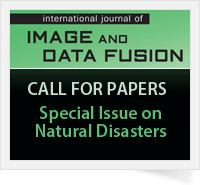by admininsteg | May 23, 2013 | Information
INSTeG encourages research students to apply for an internship. We have a large number of very interesting research projects for which we need support.
| INSTeG Member |
|
|
Topic Research |
|
| Mazlan Hashim |
: |
1. |
Impact of Climate Change on Antarctica-Tropical Region. |
| Prof. Sr. Dr. |
|
2. |
New algorithms for seagrass mapping and determination of seagrass biomass from satellite |
|
|
|
remote sensing data for Malaysian coastal waters. |
|
|
3. |
Seagrass Biomass from Satellite Remote Sensing. |
|
|
4. |
Modeling Spatial and Temporal Methane Emission from Wetlands and Converted Wetland-to-Oil |
|
|
|
Palm Plantation Using Satellite Remote Sensing Data. |
|
|
5. |
Conservation and Sustainable Use of Biodiversity in Urban and Peripheral Ecosystems. |
|
|
6. |
Development retrieval of variability of water yield using satellite multi-sensor remote sensing data. |
|
|
7. |
Ecology Services Mapping: Phase 1. |
|
|
8. |
Assessment of Subsurface Infrastructures Condition Using Image-Based Non-Destructive Testing System. |
|
| .. |
| Ab Latif Ibrahim |
: |
1. |
Remote Sensing and Geographic Information System for Streamflow Modeling. |
| Assoc. Prof. Dr. |
|
2. |
Study on Remote Sensing Data for Tropical Forest Carbon Assessment. |
|
| .. |
| Maged Mahmoud Marghany |
: |
1. |
Space-Based Detection of Wetlands Surface Water Level Changes Using Interferometric Synthetic |
| Assoc. Prof. Dr. |
|
|
Aperture Radar (InSAR). |
|
| .. |
| Mohd Nadzri Md Reba |
: |
1. |
Spatial and Temporal Variations of Biological Production in the Asia-Pacific Marginal Seas. |
| Dr. |
|
2. |
Study on aerosol optical properties by the synergy of multi space-borne remote sensing and ground-based |
| |
|
|
instrumentations. |
|
|
3. |
Design a state-of-the-art data dissemination and analysis for DSS using web and mobile-based platform. |
|
| .. |
| Christine Pohl |
: |
1. |
Suitable image fusion techniques to increase the usability of RazakSAT-2 for mapping applications in the Tropics. |
| Prof. Dr. |
|
2. |
Oil Palm Plantation Monitoring using Synthetic Aperture Radar. |
by | May 23, 2013 | Information
As the main focus of INSTeG is to enhance research activities in UTM and thus increase the number of publication, we are currently not offering an undergraduate program. The students working at INSTeG follow a Master or PhD program supervised by INSTeG staff. At present, there are 15 master students and 10 PhD students. These research students are postgraduate students of the Faculty of Geoinformation and Real Estate.
Their topics cover the following research areas;
- GPR Research.
- Seagrass Biomass from Satellite Remote Sensing.
- Geology studies and lithological mapping using ASTER and Landsat TM data.
- Calibration Of Ground-Based Radar (GR) In Order To Rainfall Forecasting.
- Water Yield.
- Cloud classification for rainfall estimation.
- Greenhouse Gases Modelling.
- Integration of Remote Sensing and Ggeographic Information System Techniques for Optimal Food Industry Site Selection.
- Streamflow modeling using remote sensing and GIS.
- NASA Satellite Derived Parameters for Air Quality Monitoring.
- Bio-optical Algorithm.
- Biological production in the Sulu Sea
- Algorithm modification for Chlorophyll-a detection.
- Urban Runoff.
- Local Knowledge and Remote Sensing.
- Ecosystem Services.
- Forest Water Yield.
- Flood Risk Mapping.
- New Algorithm of Seagrass Mapping and Seagrass Biomass.
INSTeG is looking for post-doctoral scientists to work as researcher under the supervision of and in cooperation with our staff. We are encouraging research students who are interested to do an internship at INSTeG to contact us.
by | May 23, 2013 | Information

UTM is a Research University with highly specialized experts in many different fields of science. Experts need to communicate their special findings either to other experts or to professionals in other disciplines, who might be responsible for administration, approbation of fund or for applications within the industry. In any case these experts should be able to present their knowledge in an appropriate way.
For this they need skills to explain information efficiently and in a professional manner as well as in a non technical way. Presentation Skills have to be learned and trained. Again and again the presenter has to improve his/her own ability to deliver findings at any time without stress and in a understandable and comprehensible way.
INSTeG offers special presentation courses and workshops with learning by doing for participants to become a professional presenter. These trainings include the planning of a presentation related to the targeted objective, the creation of slides and the decision, with which information the audience should come away. The training includes aspects on body language as well as the pronunciation and the comprehensibility and audibility of English.
by | May 23, 2013 | Information

To be able to enhance own awareness, to develop own potential and to grow as an authority are major aims of UTM for their members.Personal Development means to grow from a follower to a leader, to a person with self-confidence, with self-responsibility and with a natural intrinsic motivation to create an outcome of a very high quality to contribute to the public whole. Personal Development needs time – and input.
INSTeG offers workshops, courses and training to enhance consciousness. The participants learn to become an authority not only in the narrow field of expertise but as a personality in general, too. A growing Research University needs Experts, who can stand in an international comparison – not only as one track specialists but as Experts with self-confidence and wisdom.
by | May 23, 2013 | Information

All social life is based on communication. Particularly for research specialists of a Research University it is absolutely essential to be able to communicate in a very advanced way, e.g. with other experts around the world as well as with non-professionals. Communication skills are needed to be able to understand others and to express own needs by eliminating misunderstood.
In the professional field of a Research University the communication occurs very often in English. Experiences proof that every single person has his own truth and in the same way every person has his own „English“. Now it is indispensable to align again and again, whether the communication partners understand each other or not. This check happens not on object level but on self-revelation level. People are not used to communicate on self-revelation level. They have to learn to reveal their needs and emotions to create a fruitful working environment. Working together in a team requires very good communication to be efficient and successful.
INSTeG offers special communication workshops where participants learn to listen and to send their message at an advanced level to members of any target group.
by | May 8, 2013 | Ads, Information
CALL FOR PAPERS: Special Issue on NATURAL DISASTERS
INTERNATIONAL JOURNAL OF IMAGE AND DATA FUSION (IJIDF)

Guest Editor: Prof. Dr. Sr. Mazlan HASHIM, Director; Co-Editor: Dr. Christine Pohl; Institute for Geospatial Science and Technology ( INSTEG), Universiti Teknologi Malaysia ( UTM)
Image and data fusion plays an important role in natural disaster prediction and assessment. The use of multisource data at various levels improves the availability and quality of information derived. Especially in the case of natural distasters it is important not to be limited to one data source alone in order to provide up-to-date, accurate and timely information at various scales.
Authors are invited to submit papers on any topic related to the Aims and Scope of IJIDF that are related to the topic of NATURAL DISASTERS. Papers on how to use image and data fusion techniques for detecting, observing, monitoring, mapping, of the many types of Natural Disasters such as: volcanic eruptions, earthquakes, floods, Hurricanes/cyclones, landslides, tsunamis, storm surges, desertification, etc.
Of particular interest are papers that focus on:
- Fusion of optical and microwave data for monitoring disasters in the Tropics.
- Multitemporal image fusion of time related disaster processes such as pre-during and post disaster event flood and earthquake monitoring.
- New techniques and methodologies for studying natural disasters.
- Fusing remote sensing data and other data sets (e.g. GIS data, field, statistical, laboratory, historical data, etc.) for enhanced study of disasters.
- Novel applications of image and data fusion for the study of natural disasters.
Authors are invited to submit their original research manuscripts online to IJIDF, BEFORE 1st JULY, 2013. The papers will undergo a double-blind peer review process and the first six papers accepted will be published as the SPECIAL ISSUE. All other papers that are subsequently accepted will be published in the regular issues of the Journal.
IJIDF homepage: www.tandfonline.com/TIDF
Paper online submission: http://mc.manuscriptcentral.com/tidf
Contact Information:
Guest Editor: mazlanhashim@utm.my or profmhashim@gmail.com
IJIDF Editorial Office: ijidf@Casm.ac.cn






